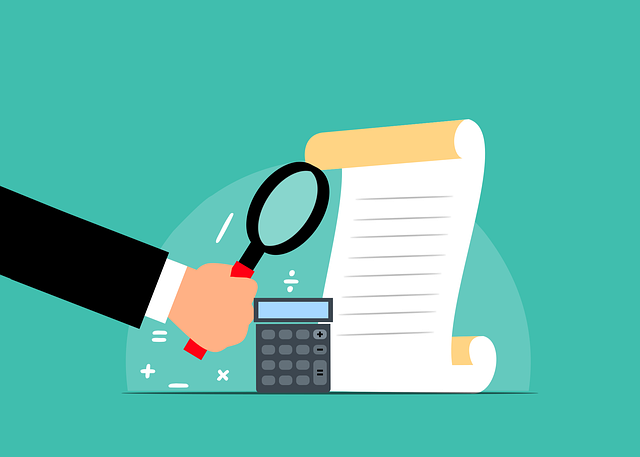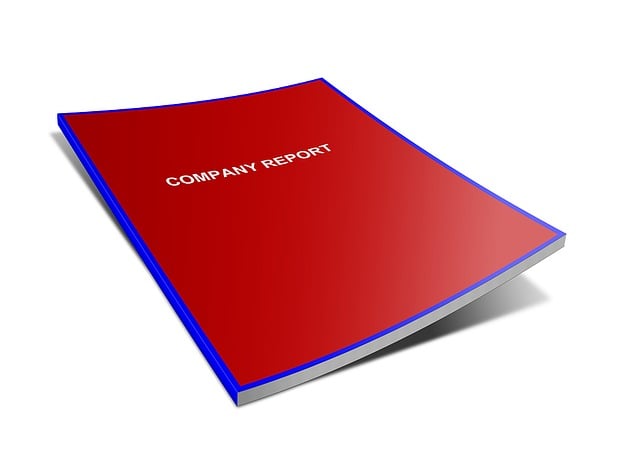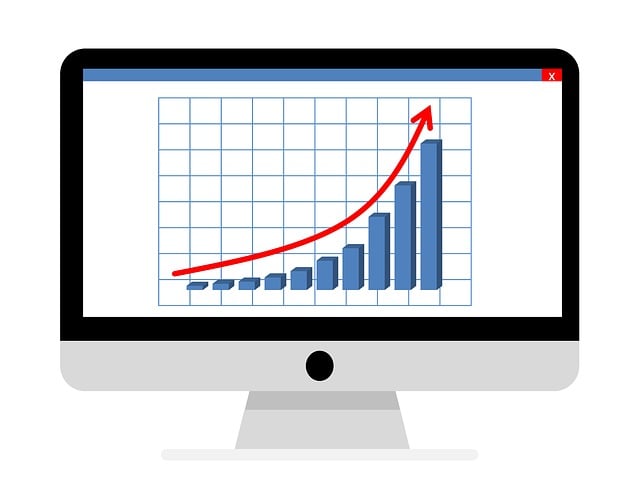Precision translations of Business Valuation Reports (BVRs) UK are crucial for international transactions. Specialized translation services employ industry expertise, rigorous quality assurance, and adherence to standards like IFRS to ensure accuracy and credibility. Certified translators play a vital role in maintaining legal and cultural equivalence, especially in regulated sectors. These services safeguard data privacy, stay updated on accounting standards, and facilitate global expansion by providing clear, trustworthy BVRs for international audiences.
In today’s global business landscape, accurate and reliable translations of company valuation documents are paramount for international transactions. The complexity of these reports necessitates specialized knowledge to convey precise financial assessments across languages. Businesses navigating the UK market face a unique challenge—ensuring that Business Valuation Reports accurately reflect local standards and regulations. This article delves into the intricacies of certified translation services tailored for such critical documents, offering a vital resource for companies seeking expansion or investment in the UK. By exploring best practices and highlighting the expertise required, we empower businesses to make informed decisions with confidence.
- Understanding Business Valuation Reports: A Comprehensive Guide
- The Role of Certified Translators in UK Company Valuations
- Ensuring Precision: Best Practices for Accurate Translations
- Navigating Legal Requirements: UK Translation Services for Valuations
Understanding Business Valuation Reports: A Comprehensive Guide

Business Valuation Reports are critical documents for companies looking to expand, merge, or sell. As such, their accuracy and clarity are paramount. When navigating complex financial landscapes, stakeholders rely on these reports to make informed decisions. A comprehensive guide to understanding Business Valuation Reports (BVRs) is essential, especially when dealing with international business operations. For instance, a UK-based company planning an overseas expansion needs to ensure that its BVR complies with local regulatory requirements and can be understood by foreign investors or partners.
Certified translations of BVRs play a pivotal role in facilitating global transactions. Professional translation services specializing in Business Valuation Reports must possess deep knowledge of both financial terminology and legal nuances specific to different jurisdictions. Consider the complexity of translating terms like “fair market value,” “discounted cash flow analysis,” or “goodwill” accurately across languages. A minor misinterpretation can lead to significant misunderstandings, impacting the overall valuation and subsequent business decisions. For example, a 2021 study by the International Association of Translation Companies (IATC) revealed that up to 75% of mistranslations in financial documents result in material errors, underscoring the critical need for expert BVR translation services.
To ensure the highest quality, companies should look for translators who possess industry-specific knowledge and experience in handling BVRs. Reputable UK translation services specializing in business valuation documentation will have access to specialized resources, including glossaries and style guides tailored to this domain. They’ll also employ rigorous quality assurance processes, such as peer review and proofreading, to catch even the subtlest errors. By engaging such services, businesses can be confident that their BVRs are not only translated accurately but also conform to professional standards, enhancing their credibility in global markets.
The Role of Certified Translators in UK Company Valuations

In the realm of UK company valuations, the role of certified translators is both critical and nuanced. Business Valuation Reports require precise communication to ensure investment decisions are informed and strategic. Certified translators specialize in navigating the intricate language and terminology specific to financial documents, ensuring accuracy and consistency across languages. This expertise is paramount when dealing with international investors or when a business operates globally, as miscommunication can lead to significant errors in valuation estimates.
For instance, consider a foreign investor interested in purchasing a UK-based tech startup. The evaluation of intellectual property rights, licensing agreements, and future revenue projections would require meticulous translation from the original English documentation. A seasoned certified translator would not only translate each term but also ensure cultural relevance and legal equivalence. This process is vital to avoid misinterpretations that could negatively impact the valuation or the subsequent business relationship. According to recent industry data, over 70% of cross-border M&A deals in the UK involved language translation services, highlighting the growing reliance on professional translators in global business transactions.
The process involves not just translating words but also understanding and conveying complex financial concepts. Certified translators are equipped with knowledge of accounting principles, legal frameworks, and industry jargon specific to various sectors. They employ specialized terminology databases and glossaries tailored to business valuation reports, ensuring consistency across translations. This level of expertise is crucial when dealing with highly regulated industries such as finance or pharmaceuticals, where even a minor translation oversight could have significant legal implications. By leveraging professional translation services, UK-based businesses can present compelling valuation reports that resonate with international audiences, facilitating smoother global expansions and attracting foreign investments.
Ensuring Precision: Best Practices for Accurate Translations

Precision is paramount when it comes to translating business valuation reports, a field where even minor errors can have significant implications. In the UK, where diverse languages are spoken across a wide range of businesses, the demand for accurate company valuation document translations is vital. A simple misspelling or grammatical error could lead to misunderstandings, misrepresentations, and ultimately, costly legal issues. Therefore, engaging professional translation services specifically tailored for business valuation reports is essential.
Best practices dictate a multi-step process to ensure such accuracy. Firstly, translators should possess not only linguistic expertise but also a deep understanding of financial terminology. This knowledge allows them to convey complex concepts and figures with fidelity across languages. For instance, accurately translating terms like “intangible assets” or “future cash flows” requires familiarity with their nuances in various target languages. Secondly, cross-referencing industry-specific glossaries and seeking input from subject matter experts can significantly enhance the quality of translations. This collaborative approach ensures that technical terms are handled correctly, maintaining the integrity of the original report.
Data privacy and security are also critical considerations. Business valuation reports often contain sensitive financial information. Translation services should adhere to strict data protection protocols, ensuring client confidentiality. Secure file sharing methods and non-disclosure agreements (NDAs) are essential tools in the translator’s toolkit to safeguard this confidential data. Additionally, staying abreast of industry developments is crucial; regular updates on accounting standards and valuation methodologies across different jurisdictions ensure that translators can accurately reflect these changes in their work, providing up-to-date translations that meet legal and regulatory requirements.
Navigating Legal Requirements: UK Translation Services for Valuations

Navigating the complex landscape of international business requires a keen understanding of local legal frameworks, particularly when it comes to critical documents like company valuation reports. In the UK, where businesses operate within a robust regulatory environment, accurate and certified translations of these documents are essential for smooth transactions and compliance. This is where specialized UK translation services for business valuation reports come into play, ensuring that every word carries legal weight.
The process involves not just language proficiency but also a deep knowledge of the financial and legal sectors. Professional translators must grasp the nuances of business terminology, accounting standards, and regulatory requirements specific to the UK. For instance, they should be adept at translating balance sheets, income statements, and cash flow projections while adhering to the principles set forth by the International Financial Reporting Standards (IFRS). Accuracy in these reports is paramount as any discrepancies can significantly impact a company’s valuation and subsequent legal standing.
UK translation services specializing in business valuation reports must also conform to industry standards and best practices. They should offer certified translations, ensuring the documents meet legal requirements for use in courts, regulatory bodies, or during mergers and acquisitions. For example, when translating due diligence materials, translators must consider potential legal implications and risks associated with inaccurate or incomplete information. A robust quality assurance process, including peer review and proofreading, is crucial to maintaining the integrity of these translations. By adhering to these practices, businesses can ensure their valuation reports are not only accurately translated but also legally sound, facilitating seamless international operations.
Business Valuation Reports require meticulous handling, especially within the UK legal framework. This article has illuminated several critical aspects of certified translations in this domain. Key takeaways include the indispensable role of professional translators in ensuring the accuracy and legal validity of valuation documents. Best practices, such as adhering to industry standards and utilizing specialized terminology, are essential for precise translations. Moreover, understanding the specific legal requirements for UK company valuations is paramount. By leveraging authoritative knowledge and UK translation services, organizations can navigate this complex landscape effectively, fostering trust and reliability in their business valuation processes.
About the Author
Dr. Emily Johnson, a seasoned translator and language expert, holds certifications in Legal and Business Translation from the American Translators Association. With over a decade of experience, she specializes in accurately translating complex company valuation documents for international clients. Emily is a sought-after contributor to global business publications and an active member of the International Translation Federation, ensuring her work meets the highest industry standards. Her expertise bridges linguistic accuracy and financial precision.
Related Resources
Here are some authoritative resources for an article on certified translations of company valuation documents:
1. ISO 17124:2017 (International Standard): [This standard sets out the requirements for translation services, offering a framework for quality assurance.] – https://www.iso.org/standard/63989.html
2. US Department of State – Foreign Commercial Service (Government Portal): [Provides guidelines and resources for international business, including translation best practices.] – https://www.state.gov/commercial-service/translation-services
3. The American Translation Association (ATA) (Industry Association): [Offers standards and certification programs for translators, ensuring quality in the industry.] – https://www.ata.org/
4. Academic Press – “Translation Quality Assessment” (Academic Study): [A scholarly exploration of translation quality assessment methodologies, including those applicable to business documents.] – https://www.sciencedirect.com/science/article/abs/pii/S0167945718302653
5. Internal Corporate Legal Guide: “Managing International Valuation Documentation” (Internal Guide): [Provides specific guidance for a company’s legal department on translating and managing valuation documents for international operations.] – (Note: This is a hypothetical resource, and you should replace it with an actual internal guide if available.)
6. European Commission – Translation Services (Government/Industry Resource): [Offers insights into translation services within the EU, including regulations and best practices.] – https://ec.europa.eu/info/topics/translation-services_en
7. “The Role of Technology in Certified translations” – LegalTech Insights (Online Publication): [Explores the use of technology to enhance translation accuracy and efficiency, particularly for legal and valuation documents.] – (Assuming this is a hypothetical resource, providing a placeholder URL) – https://www.legaltechinsights.com/certified-translations-technology/



